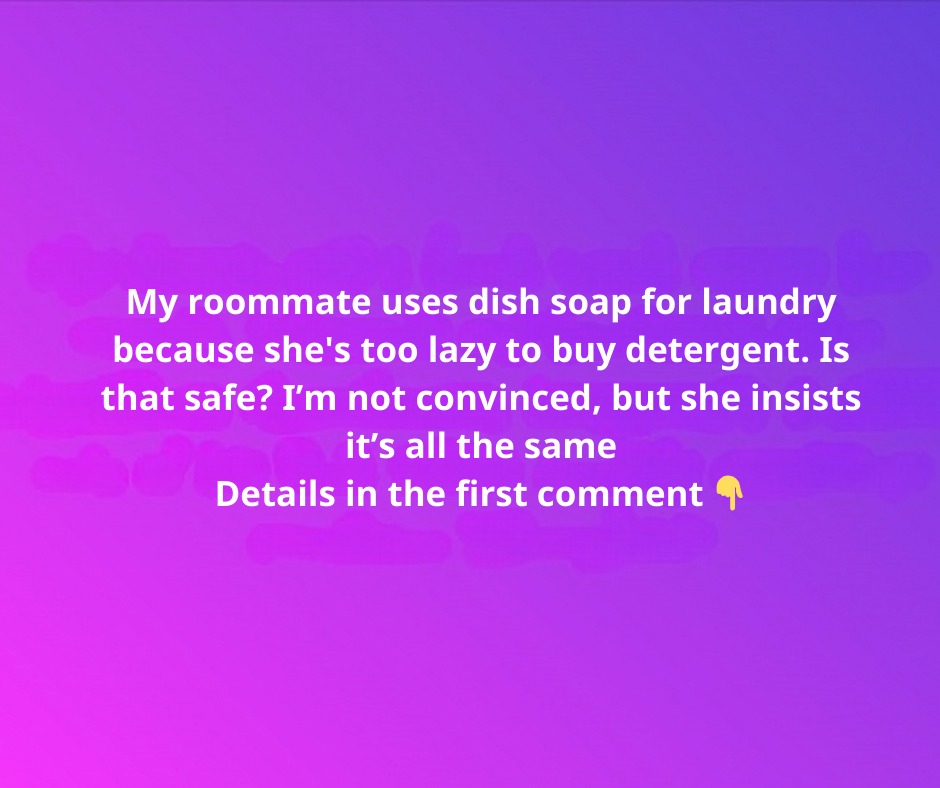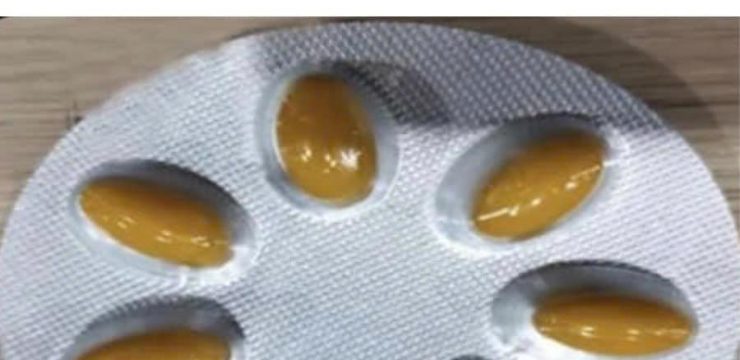Everyone has their own approach to household chores, but some cleaning shortcuts can be risky. Take, for example, your roommate’s habit of using dish soap for laundry. While it may seem convenient, is it really safe for your clothes and washing machine? Before you follow their lead, let’s dive into the science behind this method and the risks involved.

Is Dish Soap Safe for Laundry?
At first glance, using dish soap for laundry might seem like a harmless way to save time or money. However, dish soap and laundry detergent are designed for different purposes and have distinct chemical compositions, which can lead to problems when used interchangeably.
1. Different Formulations: Grease-Fighting vs. Fabric Care
Dish soap is formulated to cut through grease on hard surfaces like pots and pans. It contains strong grease-fighting agents, making it great for tackling stubborn food residue. On the other hand, laundry detergent is specifically made to clean fabrics. It includes enzymes and surfactants that effectively remove dirt, sweat, and stains while being gentle enough to protect clothing fibers.
Why It Matters: Dish soap can be too harsh for clothes, potentially causing faster wear and tear, fading, or even damage to delicate fabrics.
2. Excessive Suds: A Foam Problem
Dish soap tends to create a lot of foam, which is ideal for handwashing dishes but can spell disaster in a washing machine. Especially in high-efficiency (HE) washers that are designed for low-sudsing detergents, dish soap can produce so much foam that it causes the machine to overflow or malfunction.
Why It Matters: Excessive suds can lead to clogs, leaks, and potential damage to your washing machine, resulting in costly repairs.
3. Residue Left on Clothes
Laundry detergent is designed to rinse out completely, leaving clothes clean and fresh. Dish soap, however, is thicker and often leaves a residue behind, even after multiple rinse cycles. This can make your clothes feel stiff, sticky, or greasy.
Why It Matters: Residual soap can cause skin irritation, itching, and even rashes, particularly for those with sensitive skin or allergies.
Risks of Using Dish Soap for Laundry
If you’re still tempted to use dish soap in a pinch, it’s important to understand the potential risks:
1. Damage to the Washing Machine
The excessive suds created by dish soap can interfere with the washing machine’s normal operation, leading to leaks and malfunctions. Over time, the foam can also clog the machine’s internal components, potentially causing breakdowns.
Bottom Line: Dish soap can damage your washing machine, leading to expensive repairs or even the need for a replacement.
2. Wear and Tear on Clothes
Dish soap’s grease-fighting formula is too aggressive for most fabrics, which can weaken fibers, cause fading, and make clothes more prone to fraying or tearing over time.
Bottom Line: If you want your clothes to last, stick to laundry detergent, which is specifically formulated to protect fabrics while cleaning effectively.
3. Skin Irritation
Because dish soap doesn’t rinse out as easily as laundry detergent, using it for laundry can result in residue remaining on clothes. This leftover soap can cause discomfort, itching, and even skin rashes—especially for those with sensitive skin.
Bottom Line: Laundry detergent is designed to rinse out completely, reducing the risk of skin irritation.
Better Alternatives When You Run Out of Laundry Detergent
If you’re out of laundry detergent and need a quick fix, there are safer alternatives than dish soap that won’t damage your clothes or washing machine:
1. Baking Soda
Baking soda is a versatile cleaning agent that can help freshen clothes, remove odors, and gently clean. Simply add about half a cup to your laundry in place of detergent. It’s not a long-term solution, but it works well for one or two loads in an emergency.
2. White Vinegar
White vinegar is another effective alternative. It can break down stains, eliminate odors, and act as a natural fabric softener. Add about half a cup to the rinse cycle for best results. It’s safe for both your clothes and your washing machine.
3. Laundry Strips or Pods
Consider keeping laundry strips or pods on hand. These pre-measured, compact options are easy to store and use. They dissolve completely in water, leave no residue, and are safe for fabrics and washing machines.
Conclusion: Stick to Laundry Detergent for the Best Results
While your roommate may claim that dish soap works just as well as laundry detergent, the risks far outweigh the convenience. Dish soap can damage clothes, cause skin irritation, and even harm the washing machine. For better results and safer washing, it’s important to use the right products for laundry.
If you’re in a pinch, try alternatives like baking soda or vinegar, which are safer for both your clothes and appliances. And to avoid running out of detergent, keep a stash of laundry strips or pods, which are easy to store and always ready when you need them.
By making informed choices and using proper laundry products, you can protect your clothes, prevent costly repairs, and maintain a clean, comfortable living environment.





